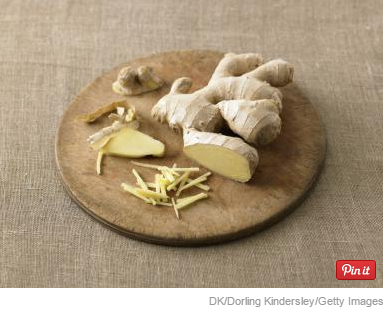Ginger is an herb sometimes used in treatment of arthritis. Proponents suggest that consuming ginger as a food, drinking ginger tea, and/or taking ginger supplements can help soothe arthritis symptoms and lessen arthritis-related pain.

Why Do People Sometimes Use Ginger for Arthritis Relief?
Because there is no cure for arthritis—and because standard care for arthritis often involves the use of medications known to trigger side effects in some patients—many people turn to natural remedies like ginger to relieve arthritis pain.
Ginger contains compounds found to reduce inflammation, a biological process that plays a key role in the
pain associated with osteoarthritis and rheumatoid arthritis. It’s also said that ginger may benefit arthritis patients by stimulating circulation.
Related: 4 Natural Remedies for Chronic Pain
Research on Ginger and Arthritis
While large-scale clinical trials testing ginger’s effectiveness as an arthritis treatment are currently lacking, a number of studies show that ginger may be of some benefit to arthritis patients.
For a report published in the International Journal of Evidence-Based Healthcare in 2008, scientists analyzed three previously published clinical trials testing ginger’s effects in adults with osteoarthritis. Although the report’s authors concluded that more research is needed to determine ginger’s safety and effectiveness as an arthritis treatment, they found some evidence that ginger may reduce pain severity and improve physical functioning in arthritis patients.
Related: Osteoarthritis Pain Relief Remedies
To date, research on the use of ginger in treatment of rheumatoid arthritis is very limited.
However, an animal study published in the Journal of Natural Products in 2009 indicates that ginger extract may help suppress the joint inflammation associated with rheumatoid arthritis.
Related: 4 Natural Remedies for Rheumatoid Arthritis
Safety
Ginger may cause a number of side effects when taken in large doses. These side effects include diarrhea, heartburn, and stomach upset.
In addition, use of dietary supplements containing ginger may be harmful to certain individuals, such as people with gallstones and people taking blood-thinning medications (including aspirin).
Furthermore, use of ginger should be avoided prior to undergoing surgery.
Alternatives to Ginger
There’s also some evidence that undergoing alternative therapies like acupuncture or practicing mind-body techniques like yoga and tai chi may help control arthritis pain.
What’s more, lifestyle changes such as achieving and maintaining a healthy weight, following an anti-inflammatory diet, and exercising regularly should help control arthritis symptoms.
Using Ginger for Arthritis Relief?
While scientific support for ginger’s effectiveness as an arthritis treatment is fairly limited, it’s possible that increasing your intake of this anti-inflammatory herb may enhance your overall health. Along with taking dietary supplements, you can boost your ginger intake by adding the herb to meals (such as salads and stir-fries), as well as by drinking ginger tea.
It should be noted that, when left untreated, arthritis may lead to serious health problems. For example, rheumatoid arthritis may result in severe and permanent damage to bones and tissues. If you’re considering the use of ginger (or any other type of natural remedy) for the relief of arthritis, make sure to talk to your doctor before beginning treatment.
Disclaimer: The information contained on this site is intended for educational purposes only and is not a substitute for advice, diagnosis or treatment by a licensed physician. It is not meant to cover all possible precautions, drug interactions, circumstances or adverse effects. You should seek prompt medical care for any health issues and consult your doctor before using alternative medicine or making a change to your regimen.
Read the full post in about health








